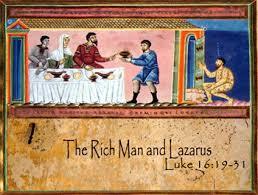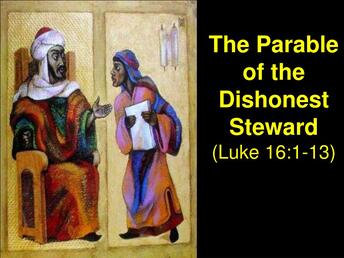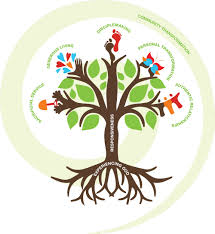
Luke 16:19-31; Amos 6:1-7
Happy Autumn! As we begin a new season, we are beginning a program called Fall into Faith. Through worship, the scriptures, and the sermon we will explore the practices of the healthy, evolving church. Or to use a term we have been using all summer, a vital congregation. A healthy, evolving church, a vital congregation, is a church that builds bridges between people and with God. It creates neighbors and disciples between insiders and outsiders. Our readings for the past several weeks have touched upon precisely this: how to overcome divides between sinners and saints. Between those on the inside, those left in the cold. And especially between the haves and have nots.
In our brave new post-covid world, we have experienced this divide acutely. People are divided politically. Economically, who hasn’t felt the pinch at the pump? Who hasn’t seen prices of groceries, and other necessities rise? Who hasn’t grown insecure? Long Island Cares reports a 43% increase in visitors seeking help at its food pantries this past year. The Freeport Food Pantry, which our church actively supports, also reports similar upticks in use. Yesterday, at the Presbytery meeting, the Springs East Hampton Food Pantry shared a heartbreaking story about a family where both parents lost their jobs during COVID. The father came to the pantry seeking food on a bicycle; the family car had been repossessed. He came seeking food to feed their five children. The irony of these wrenching scenarios is that at the same time people have been choosing between rent and food, gas or groceries, 2.5 million millionaires were created in the US alone. It was the highest rate of millionaires added to the world economy last year in the last century. The old adage is true: the richest have gotten richer, the poor, poorer. It is something to remember as our scriptures today introduce us to the world of the rich. Those with resources are called to practice mercy.
The prophet Amos gives us a vivid picture of the life of a rich person centuries before Jesus lived. They slept on ivory beds, instead of the floor on a straw mat, like most Israelites did. They had couches to lounge on – instead of the ground. They regularly consumed lamb and calves’ meat, a delicacy —while most of the hoi polio rarely if ever ate meat. Instead of working from dawn to dusk, they sat around singing idle tunes, drank wine, anointed themselves with finest oils so that they smelled oh so fresh – while holding their noses at the stench of the rest of humanity.
There was one critical flaw that Amos noted about the ancient rich- they were not grieved, angry, or upset that the nation of Israel was coming to ruin – or was being seized, forced into poverty, disinherited from the land. They lacked mercy for the destitute poor. They had the power to change things, but just didn’t care. As a result, God allowed them to experience the consequences of their distain for the less fortunate.
Six centuries later, Jesus tells us the story of another wealthy person. A rich man dressed in the most exquisite designer clothes, who feasted, not just ate, feasted - sumptuously every day. While the Rich Man is feeding his face, a poor man named Lazarus, sits at his gate. Lazarus—was destitute - sick – reduced to begging. His sores were his clothing. He who was so hungry, he ached to have the luck of the dogs; since it was custom for the family animals to eat the crumbs that fell during the meal.
The only compassion shown to Lazarus came from the dogs -- who licked his sores and provided some contact, some form of consolation. We can assume from Jesus’ tale that this rich man never acknowledged Lazarus, although he is a fixture at the wealthy man’s gate. The Rich man had to see him as he came and went from his house. But he did nothing.
Just like the wealthy of Amos’ day – this first century Rich man did not grieve Lazarus’ condition -- this outsider did not rouse him to have mercy or compassion on him. And so, Jesus says, the rich man upon his death went into eternal exile – Hades -- where he was tormented, in agony and in flames. It is important to realize that the Rich Man went to hell not because he was rich, but because he did not practice mercy on Lazarus. The rich man sees Father Abraham with Lazarus, for the first time he truly sees Lazarus, and begs to Abraham: “Have mercy on me.” The shoe is on the other foot. The merciless man now wants mercy.
Now, not all rich people are blind and indifferent. Many rich people do give back. They are the fortunate and just. However, a great many of us blessed with wealth, good income, access to abundant social resources, and are sorely tempted to spiritual blindness and indifference of spirit. The devil would have us dehumanize the poor, ignore them, look down on those who are less fortunate. If we are to be a vital congregation, we need to practice mercy as Jesus did; with abundance and abandon.
At a basic level, mercy means to be spared or rescued from judgment, harm, danger, or trouble. Mercy means even more than this. Mercy cares for the needs of those in distress. God expects His people to be merciful to others because God has been merciful to them. Mercy is to be practiced: toward neighbors (1 Kgs 8:31-32 ; Prov. 3:29 ) and in being generous toward the poor and needy (Zech 7:9-10; Ps 37:21; Prov. 14:21; 23; 19:17; 28:8). The church has traditionally recognized seven corporal acts of mercy: to feed the hungry, to give drink to the thirsty, to clothe the naked, to give shelter to travelers, to visit the sick, to visit the imprisoned, and to bury the dead.
Mercy is a main characteristic of Jesus. The word is often used of Jesus and by Jesus, in his ministry, teachings and healings. Jesus shows mercy: for the multitudes ( Matt 9:36 ; 14:14; 15:32), for the blind (Matt 20:34 ), for a leper (Mark 1:41), (Matt 9:27 ); for a possessed child (Mk 9:20-27 ), for a widow's plight (Luke 7:13 ), a woman with a possessed daughter (Matt 15:22 ), the father of an epileptic boy (Matt 17:15 ), with ten lepers (Luke 17:13 ), a penitent sinner (Luke 8:13 ). Jesus has mercy on those in need. Jesus teaches that mercy is a mark of true discipleship (Matt 5:7 ). Learn, Jesus says, what it means that I desire mercy, not sacrifice.
Without mercy, we are often like the photographer on an overseas project. He was commissioned to photograph someone that characterized the wretched condition of humanity; a real-life picture that would demonstrate humankind’s need for mercy. It took a while but after searching the photographer captured his picture. It was a hungry beggar, lying on the curbside, with his hand stretched toward a storefront displaying bread. The editor agreed that it perfectly depicted humanity's need for mercy. After congratulating the photographer, the editor asked: "And what assistance did you give the beggar after the photograph?" The photographer confessed he did nothing. The editor then responded: "You got the picture, but you didn't get the message."
The Rich Man, the 8th century wealthy, our unbalanced economic system, never gets the picture, let alone the message. We get the picture. Do we get the message?
The message is simple. The message is mercy. Mercy that refuses to look away. Mercy that sees hunger and gives food. Mercy that sees sores and gives medicine. Mercy that sees rags and gives decent clothing. Mercy that sees prejudice or bullying and speaks out for those oppressed. Mercy that sees poverty and works to restore support, resources and dignity. Mercy that sees the migrant and give shelter. Mercy that sees a mistake, an offense, and forgives. Mercy that sees; sees insiders and outsiders and sees neighbors.
Ultimately, the Bible teaches us that we all are in need of mercy, which God is quick to give to us. The author Herman Melville wrote: “Heaven have mercy on us all – Presbyterians and Pagans alike, for we are all dreadfully cracked about the head and sadly need mending.” As Jesus teaches, “Show mercy, just as your Father shows mercy” (Luke 6:36).
So our first Fall into Faith lesson is this: for us to love mercy and practice it. To become the church of God’s heart – a church that stands as a beacon of mercy; so that forgotten people, people sitting at the gates, the lost searching for a way out of the chasm, out of their place of torment, can all be led from the gate to a place at God’s table. Amen.
https://www.cnn.com/2022/09/21/business/millionaires-global-wealth-report-intl-hnk/index.html
https://patch.com/new-york/hauppauge/food-insecurity-rising-long-island-food-bank-says https://www.liherald.com/stories/our-shelves-keep-going-bare,141240
https://www.bloomberg.com/news/articles/2021-10-08/top-1-earners-hold-more-wealth-than-the-u-s-middle-class?leadSource=uverify%20wall
https://www.cnbc.com/2018/11/01/how-much-money-you-need-to-be-part-of-the-1-percent-worldwide.html
http://newsbusters.org/blogs/scott-whitlock/2013/09/11/nets-blast-dangerous-growth-income-gap-between-rich-and-poor-forget-
http://www.jokebuddha.com/Change#ixzz2g86MWHoi
http://dailycaller.com/2011/11/09/the-top-1-percent-of-the-world/#ixzz2g8A71ceN



 RSS Feed
RSS Feed